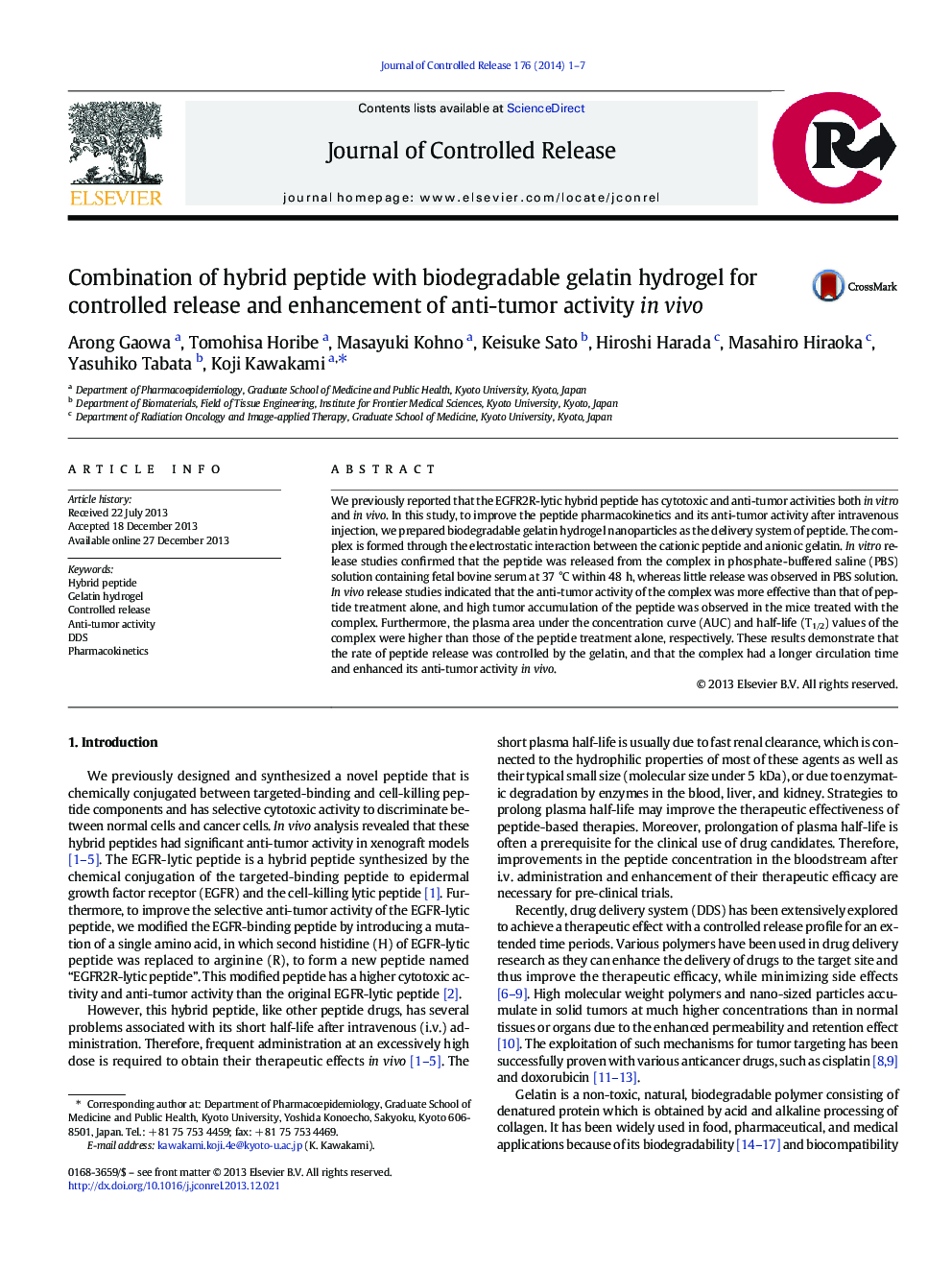| Article ID | Journal | Published Year | Pages | File Type |
|---|---|---|---|---|
| 1424125 | Journal of Controlled Release | 2014 | 7 Pages |
We previously reported that the EGFR2R-lytic hybrid peptide has cytotoxic and anti-tumor activities both in vitro and in vivo. In this study, to improve the peptide pharmacokinetics and its anti-tumor activity after intravenous injection, we prepared biodegradable gelatin hydrogel nanoparticles as the delivery system of peptide. The complex is formed through the electrostatic interaction between the cationic peptide and anionic gelatin. In vitro release studies confirmed that the peptide was released from the complex in phosphate-buffered saline (PBS) solution containing fetal bovine serum at 37 °C within 48 h, whereas little release was observed in PBS solution. In vivo release studies indicated that the anti-tumor activity of the complex was more effective than that of peptide treatment alone, and high tumor accumulation of the peptide was observed in the mice treated with the complex. Furthermore, the plasma area under the concentration curve (AUC) and half-life (T1/2) values of the complex were higher than those of the peptide treatment alone, respectively. These results demonstrate that the rate of peptide release was controlled by the gelatin, and that the complex had a longer circulation time and enhanced its anti-tumor activity in vivo.
Graphical abstractFigure optionsDownload full-size imageDownload high-quality image (132 K)Download as PowerPoint slide
